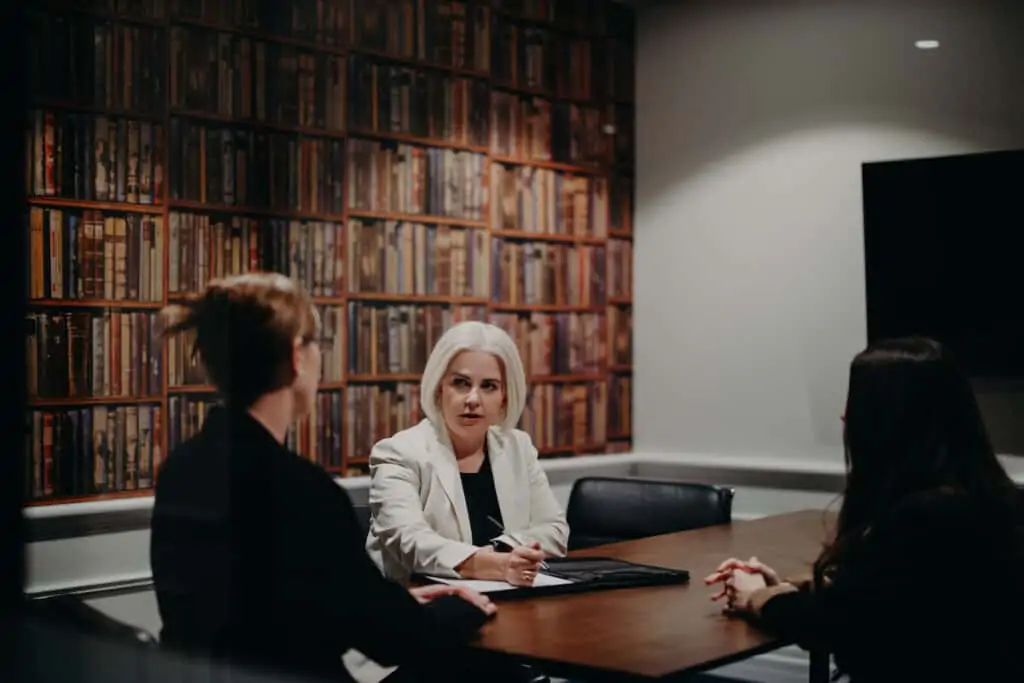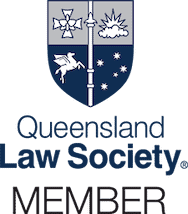Worker's Compensation Lawyers
Workers Comp Lawyers
If there’s been an accident at work, and you or one of your employee’s has been injured, you might need to notify WorkCover Qld. As workers’ compensation lawyers, we’re experts at helping both employees and employers navigate workers’ compensation claims and claims defence.


Workers Comp Lawyers - For Workers
If you’ve been injured at work you might be entitled to compensation. This can include wages, medical treatment, rehabilitation costs, travel and pharmaceutical expenses for any type of injury, including physical and psychological trauma. You might also be entitled to a lump sum compensation payment whether or not you are able to return to your work.
What if I suffered a psychological injury?
When it comes to workers’ compensation claims, a psychological injury can be more difficult to get across the line than a physical injury. However, from 1 July 2020, workers’ compensation insurers are required to meet the reasonable cost of medical, hospitalisation, medication and nursing expenses, until the claim is determined (up to 28 days), even for psychological injuries.


What if my employer was uninsured?
It is compulsory for employers to hold workers’ compensation insurance in Queensland. If your employer did not have a policy of workers’ compensation insurance at the time of an injury, WorkCover Queensland may exercise its right of recovery against the employer. A recovery against an employer does not affect WorkCover’s payment of statutory or common law entitlements to a worker.
We assist uninsured employers challenge accepted workers’ compensation claims, through applications for review to the Workers’ Compensation Regulator.
WorkCover Lawyers – For Employers
At Denning Insurance Law our expert team provide independent legal advice to employers in Queensland workers’ compensation claims, including in recovery claims by WorkCover.

Our Workers' Compensation Services
- Applications for Review
- Appeals to the Queensland Industrial Relations Commission
- Common law claims management
- Workers compensation claims for recovery
- Workplace Health & Safety complaints
- Statutory claims advice
- Medical Assessment Tribunal Appearances

Why Choose Denning Insurance Law
Denning Insurance Law has decades of expertise assisting workers and employers with statutory and common law workers’ compensation claims. Our Principal Lawyer, Kate Denning, is a Personal Injury Law Specialist accredited by the Queensland Law Society and has worked as a panel lawyer for workers’ compensation insurers. And Kate has personally resolved hundreds of workers’ compensation claims. This gives Denning unmatched insight into those claims which we can use to help you achieve the optimal result in your matter.
Our Frequently Asked Questions for Workers’ Compensation
Accidents that occur at work might mean that you are entitled to compensation. Rather than trying to figure it out on your own, we’ve compiled a list of FAQs about Workers’ Compensation below.
What does workers’ compensation cover?
An injury at work might mean you are entitled to compensation. This compensation can include wages, medical treatment, rehabilitation costs, travel and pharmaceutical expenses for any type of injury, including physical and psychological trauma.
This could also include a lump sum compensation payment whether or not you are able to return to your work.
What if I have suffered a psychological injury?
In regard to workers’ compensation claims, psychological injuries can be much more difficult to prove.
However, from 1 July 2020, workers’ compensation insurers are required to meet the reasonable cost of medical, hospitalisation, medication and nursing expenses, until the claim is determined (up to 28 days), even for psychological injuries.
What if my employer was uninsured?
In Queensland, it is a requirement that employers hold workers’ compensation insurance. When an injury occurs, and if your employer did not have a policy of workers’ compensation insurance at the time of the accident, WorkCover Queensland may exercise its right of recovery against the employer.
A recovery against an employer does not affect WorkCover’s payment of statutory or common law entitlements to a worker.
We assist uninsured employers challenge accepted workers’ compensation claims, through applications for review to the Workers’ Compensation Regulator.
When can you claim workers' compensation?
If you want to claim workers’ compensation, you may be able to do so if:
- Your accident was at or as a result of work (including injuries sustained during a break).
- In your workplace, your health and wellbeing has changed for the worse.
- You have a pre-existing injury or sickness that gets worse in your workplace.
All reasonable expenses including personal, occupational, medical, and rehabilitation expenses and more if necessary, will be covered by workers’ compensation.
What types of workers are covered by workers' compensation?
Many types of workers are covered by workers’ compensation, including part-time and casual workers, and in many situations, subcontractors. The Federal Comcare scheme covers injured Commonwealth Government employees or employees of a large national company.
How long do I have to claim?
Time limits are different in each state, however, it is always important to report your injury/accident to your work and then also report it to the workers’ compensation insurer that covers you as soon as you can.
The process generally includes filling out a claim form and then obtaining a medical certificate. If you are uncertain about the amount of time you have to claim workers’ compensation, have a chat with your lawyer, even if it has been some time since you were injured.
How do I claim workers' compensation?
To make a claim you should:
- report your injury to your employer as soon as possible
- complete a workers’ compensation claim form
- get a workers’ compensation medical certificate
- make sure to keep copies of the claim form and medical certificate and give the originals to your employer as soon as possible
- lodge a copy of the claim form with the workers’ compensation insurer.
Our work-related injury experts can give you more information about the claim process.
What do you do if you've been injured at work in Queensland?
There are certain steps that you can take once you’ve been injured at work in Queensland.
- Notify your employer of your work-related injury as soon as possible and then complete an Incident Report with your employer.
- Book an appointment with a doctor and obtain a Workers’ Compensation Medical Certificate. Even if your employer refers you to their GP, it might still be worth seeing your own doctor.
- Lodge an application for a WorkCover claim online or over the phone. Your doctor may do this but if they don’t, head online and lodge an application yourself.
- Ensure that the relevant medical and compensation applications have been handed to your employer.
What is a common law claim?
A common law claim is a claim against an employer for loss and damage caused by reason of a work related injury.
Generally speaking, in a common law claim, a worker must prove:
- They suffered an injury which has caused them or will cause them loss and damage.
- Some wrongdoing on the part of the employer, which caused their injury.
How long does a common law claim take?
A common law claim generally takes up to nine (9) months to progress to a Compulsory Conference. Most claims are resolved at or prior to the conference.
If a claim does not settle at Compulsory Conference, it may resolve during the litigated stage. Every claim is different and expert representation improves your chances of finalising your case at the earliest possible stage.
What is the common law claim process?
The common law claim process in Qld involves:
- The worker delivering a Notice of Claim for Damages;
- Disclosure between the parties;
- WorkCover (or the self-insurer) delivering a liability determination;
- A Compulsory Conference.
When lawyers speak about the common law claim process in Qld, they are usually referring to these pre-Court steps that the parties take under the Workers’ Compensation and Rehabilitation Act 2003 (Qld).
What evidence do I need to keep and collect?
There’s a variety of evidence that you can keep and collect that will help your Workers Compensation Lawyers.
This includes:
- Notes of your memory of all events relevant to the accident.
- Record names and addresses of witnesses.
- Take photos and videos of the place where you were injured, any equipment, object or product that caused the injury/accident and also your injuries to keep a physical record of them.
- Ensure that if there was any faulty product that caused an injury, you keep hold of it.
- Keep details of your absences from work caused by the injury.
- Write down all visits to doctors, physiotherapists, chiropractors etc for treatment and follow-up visits.
- Collect all receipts and invoices for medical, chemist etc expenses.
- Write down all details of assistance provided by friends and family members.
- Collect documents that show your loss of earnings and earning capacity including pay slips etc.
Can you sue WorkCover Queensland?
Generally speaking, a worker may sue their employer and not WorkCover, for their injuries.
Under the Workers’ Compensation and Rehabilitation Act 2003 (Qld), WorkCover and its staff are protected from liability for workplace injuries. However, if an employer is insolvent or deregistered, WorkCover is required to be named as the defendant in a proceeding for common law damages.



